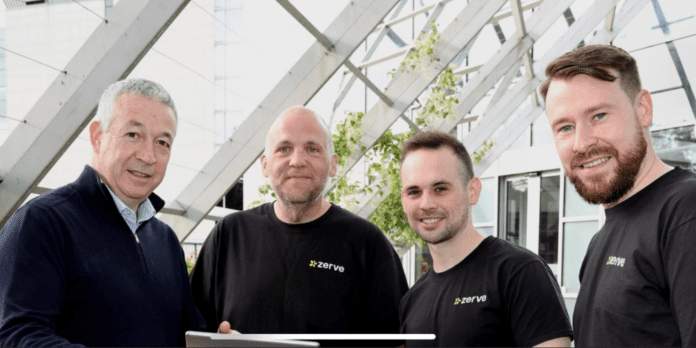A company based in Ireland, Zerve has raised €3.8 million in pre-seed funding to develop innovative data science and artificial intelligence architecture. In addition, the firm intends to double its present worker size in the next year by adding to its engineering, cloud infrastructure, and research and development teams.
The company is one of the European startups chosen for Intel’s Ignite Accelerator program for deep-tech startups. Since 2019, 148 companies have graduated from the program, raising nearly €1.6 billion.
Zerve’s solution employs a new, stateful architecture to build a scalable collaborative development environment, thereby breaking down the barriers that might exist between data scientists and developers.
Philly Hayes, Jason Hillary, and Greg Michaelson founded the Tipperary-based company in 2021 to enable collaboration between data science and AI development teams, facilitating sharing in a cloud-based serverless environment so they can collaborate live and build something stable enough to deploy.
It will also allow data scientists to collaborate.” What we’ve built is an architecture that enables people to do exploratory data analysis, while also producing productionisable code,” Hayes went on to say. “At the moment, data science is a single-player mode; it should be multiplayer. We believe we can achieve what Figma did for design, where all designers now design at the same time since we built an architecture that allows people to collaborate. We can have data scientists exploring data at the same time, collaborating and building on each other’s intuitions.”
“We’ve come a long way in terms of confirming the thesis of what we’re building, for whom we’re building it, and precisely what problems we’re solving. This grant allows us to capitalize on that potential.” Elkstone Ventures led the pre-seed investment, which included angel investors such as Algolia chief technology officer Sean Mullaney and Rob Hickey, former EVP of engineering at DataRobot.
“Zerve has an ambitious vision of bridging the gap between data science and AI development,” said Elkstone Ventures partner Niall McEvoy. “The team has built a technology that will really allow companies to break down silos and harness the power of AI and data science and has the potential to do to data science what Figma did for design.”
According to Mr. Hayes, the present methods for data scientists to share code and results with their colleagues need to be more cohesive, reducing productivity.




